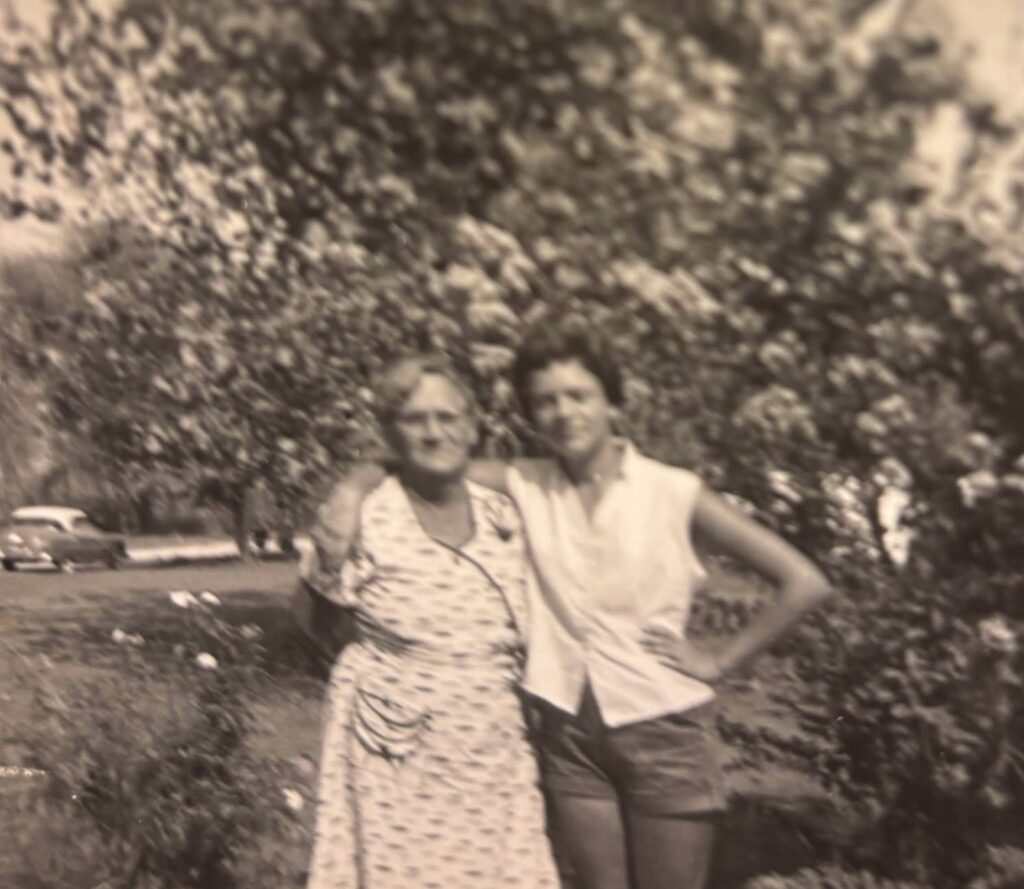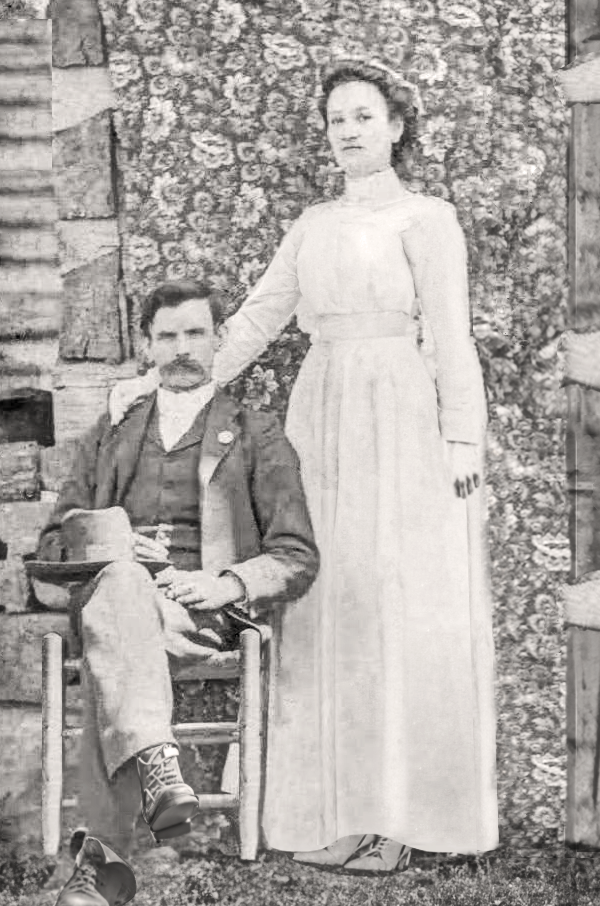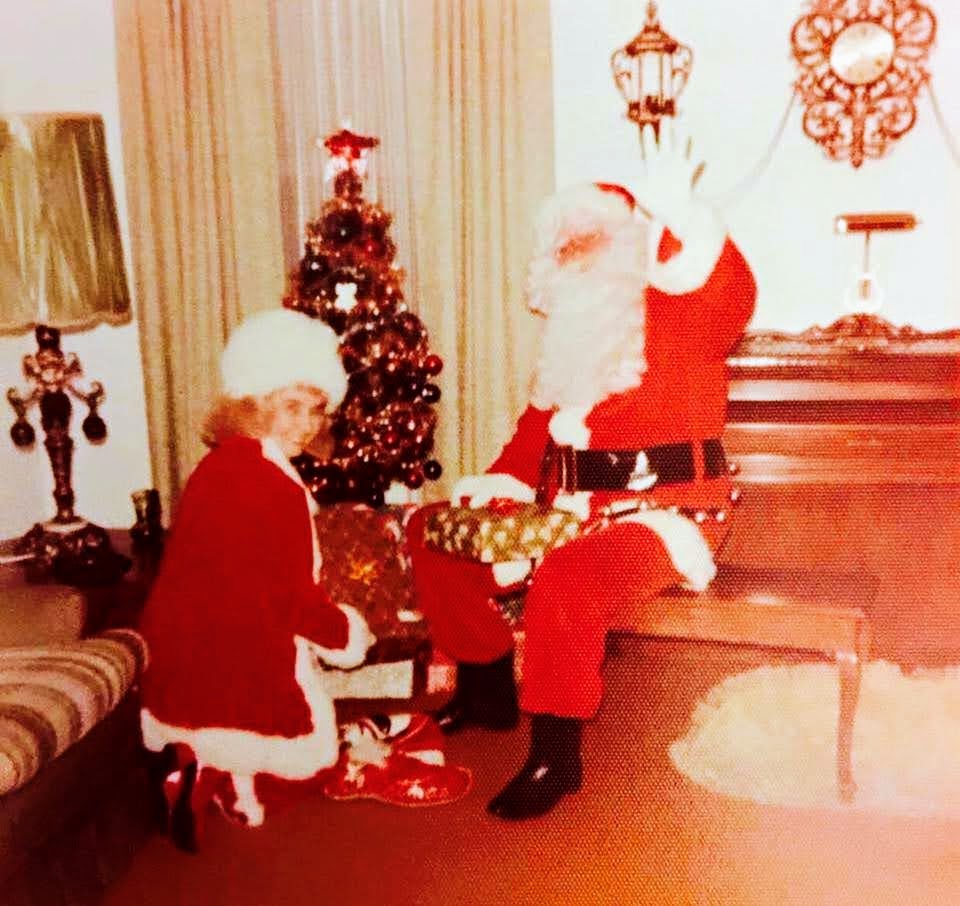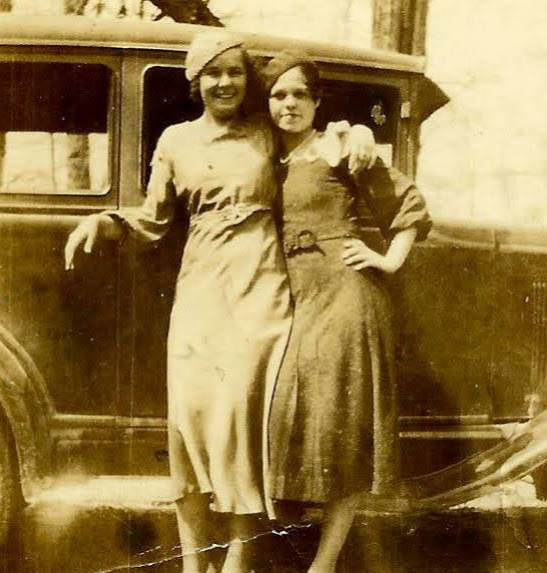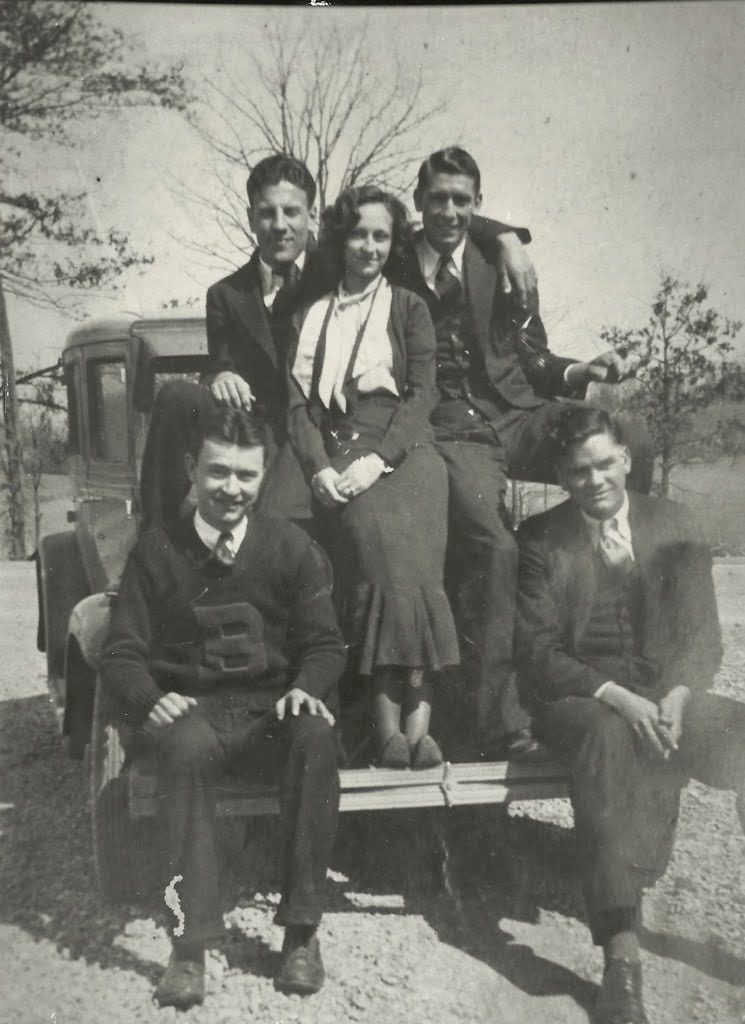
This year, I have been helping clean out my older sister’s home and have found a wealth of treasures interspersed with many questionable items. A lot of the pieces of paper and absurd objects are the same ones I sorted through 30 years ago when my mother died. My sis has been the collector and curator of all the things and could not bear to throw them away. Items I thought long discarded were tucked into drawers, on shelves, and in boxes under beds. This tendency to hoard was passed on to her via our mother’s genetics. Still, it has grown with time because she also inherited our father’s flawed arterial flow issues. I so want to talk to her about the abundance of pictures, recipes, and scribbled notes, but the time to do that has rapidly faded. Indeed, time itself has grown thin and fragile as she sits each day in a lovely memory care facility. She is not yet totally lost to us but wakes every morning closer to that shadowland where both sorrow and joy escape from her mind like air from a pinhole.
Our conversations these days are about the past because it is still somewhat clear to her. In the present, she is tired and confused, but when we speak about the old days, she remembers the abundance of love and joy of the Christmas season. We have no indoor pictures of our childhood, no Christmas mornings, no laden tables. The reason for that is simple. Our only camera was a little Brownie box with no flash attachment. I’m sure it was an expense my parents deemed too extravagant, but the pictures in my head more than suffice. Do I recall them accurately? I’m really not sure. Driving back by the tiny house we lived in as children, I’m certain it had to be cramped, but I never felt that way. I’m also sure my mom had to pinch pennies, but I never felt deprived, certainly not when I sat at the table on Christmas day.
Our love language was always food. Our mom was unquestionably the best baker of all the moms we knew, certainly the best in our church and school. One of the most lasting memories both my sis and I have of Christmas were her jam cakes. I have her recipe, and I can make the cake, but Mama took it to a professional level. Of course she made coconut cakes, banana cakes, chocolate cakes, and spice cakes which many felt were tastier than the rich heavy jam cake. The secret to the jam cake was its keeping power. Heavy laden with raisins, nuts, molasses, spices and coated with a caramel candy icing, it could be shipped safely anywhere in the world. That is precisely what she did every year in the months before Christmas. By the 25th, every relative and friend of the family had one of Mom’s delicious cakes to enjoy. My sis and I recall helping make them, measuring flour and spices onto dozens of squares of wax paper to make them ready to sift and incorporate into the liquid components of the batter. To understand the scope of my mom’s cake operation, I am including an early recipe from her notes that gives the prices of the components. You might need to cut it down a bit if you want to make it. It’s for sixty cakes.
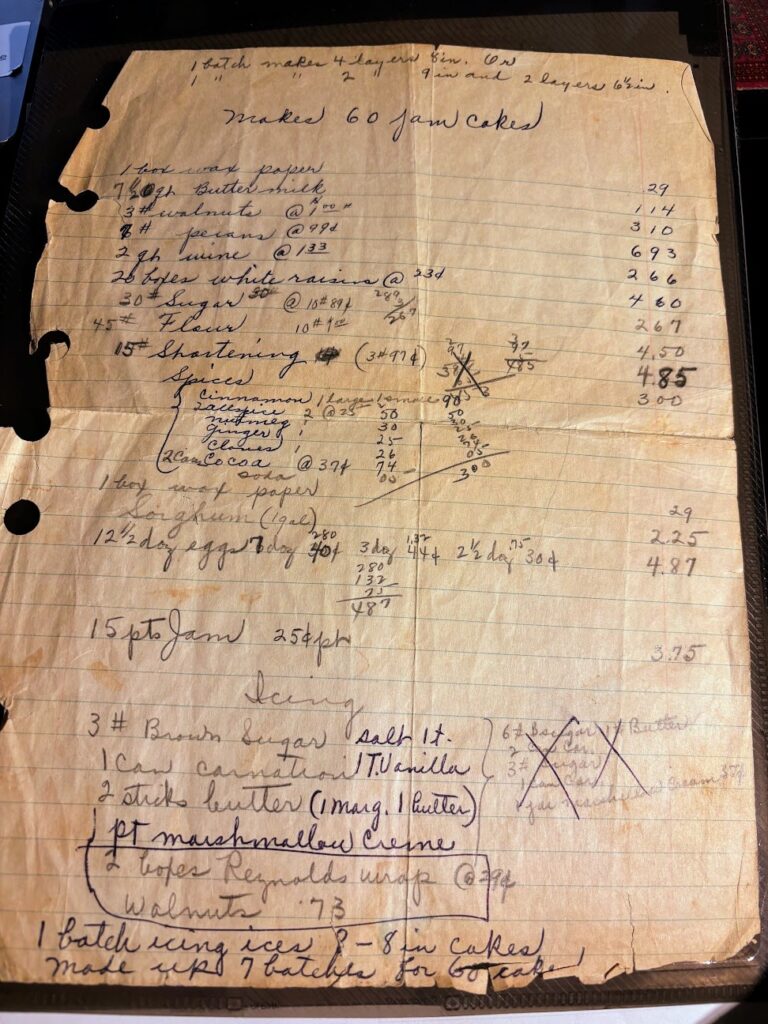
Did I mention that my mom worked full-time, was an officer in the chamber of commerce, and was an active worker in our church? I am unsure how many other things she did because she never bragged about her accomplishments. Plenty of other people did, including my sister and I, who know best what an amazing person she was. Christmas was never the same after she left us. There are moments when I envy my sister, who has forgotten so much. It seems to have fallen to me to remember everything in the same way she saves the physical bits and pieces of our lives. We each have our role. May the holiday season fill you with the joy of happy memories.


